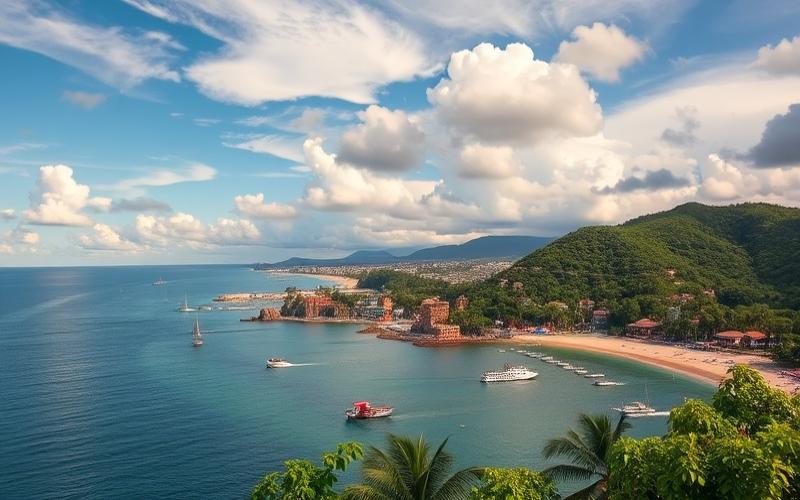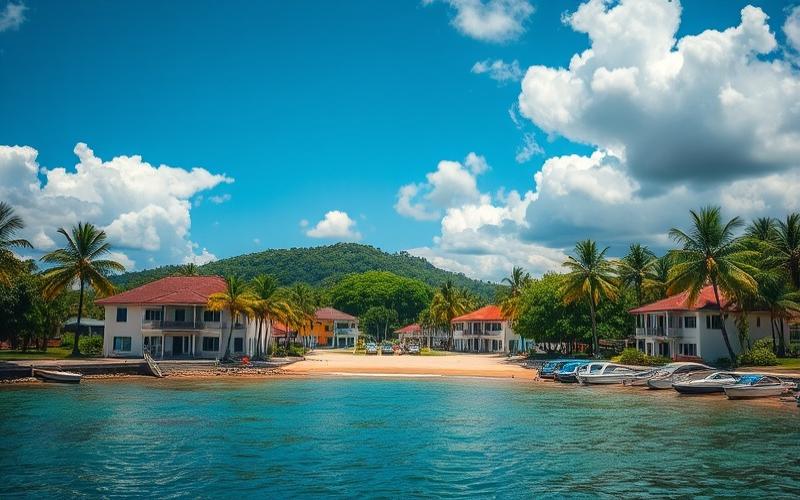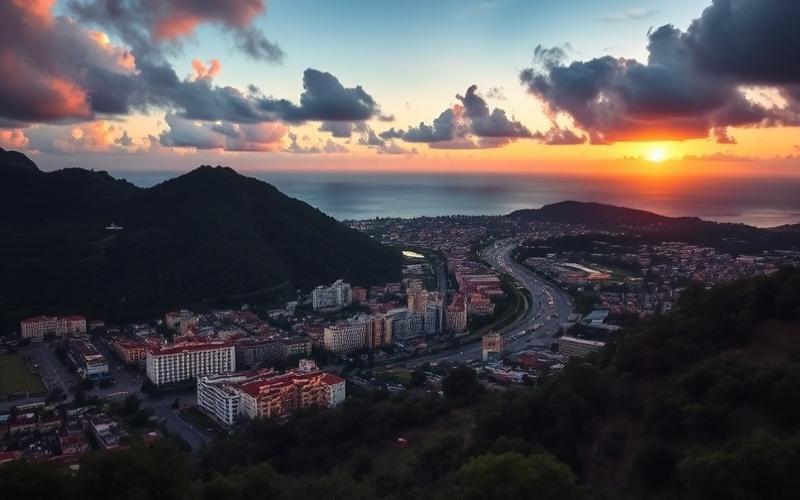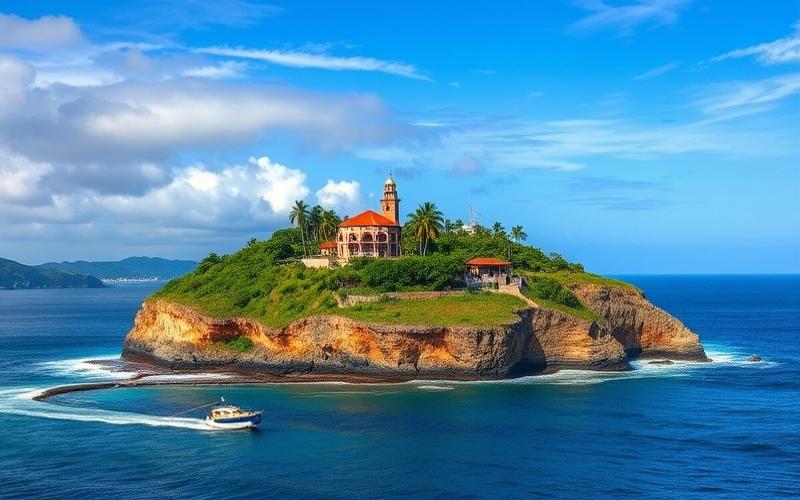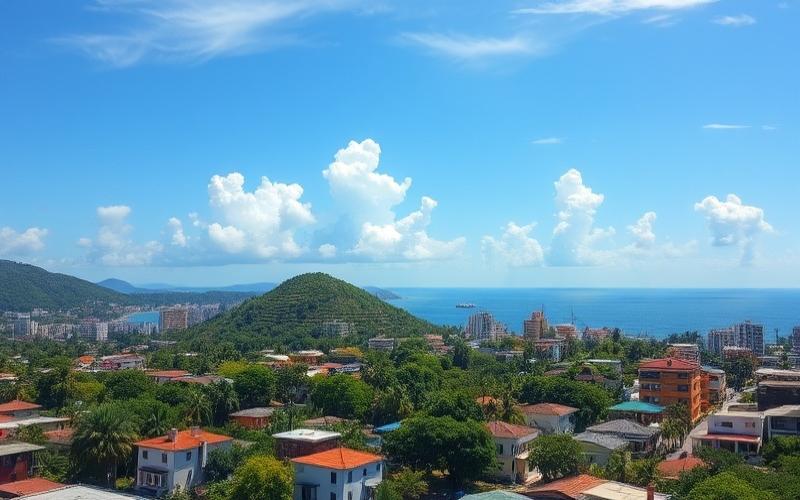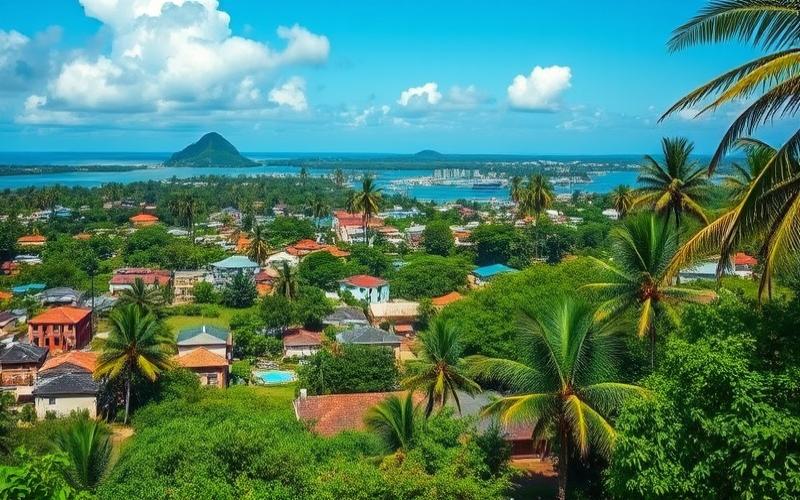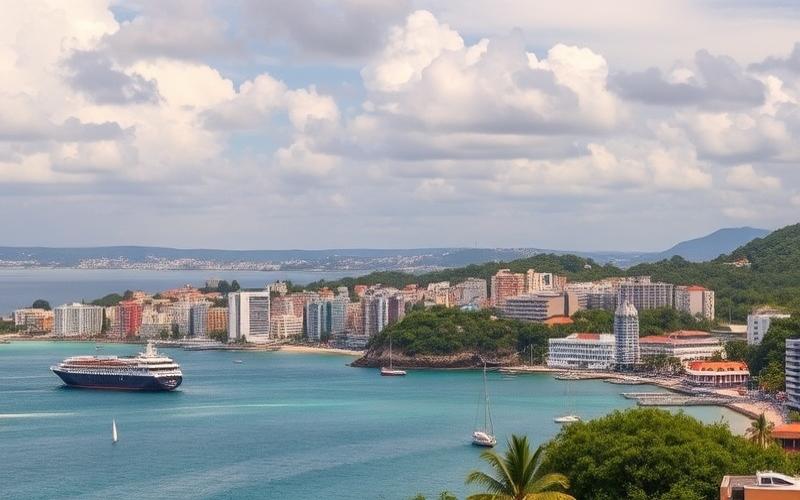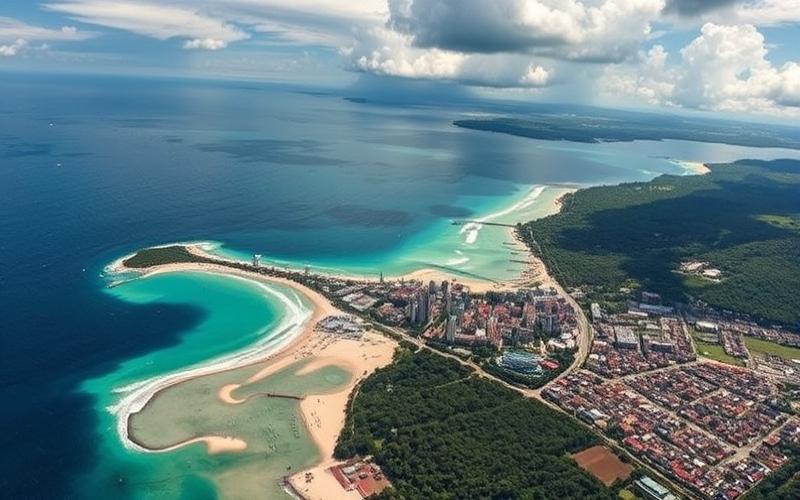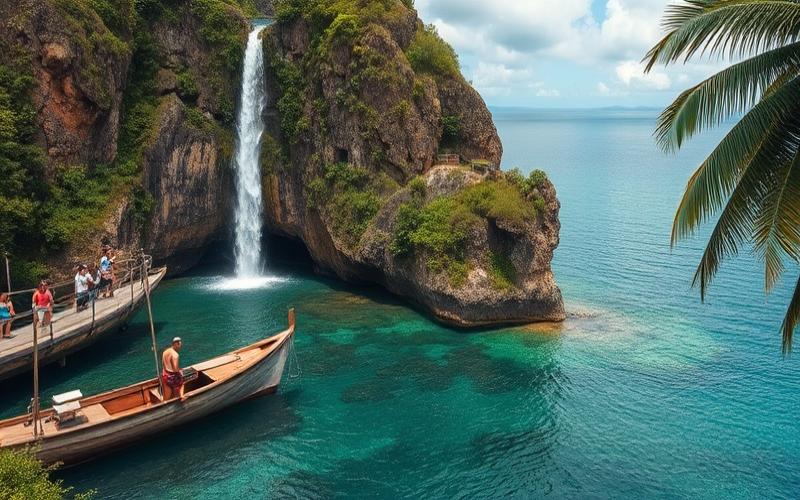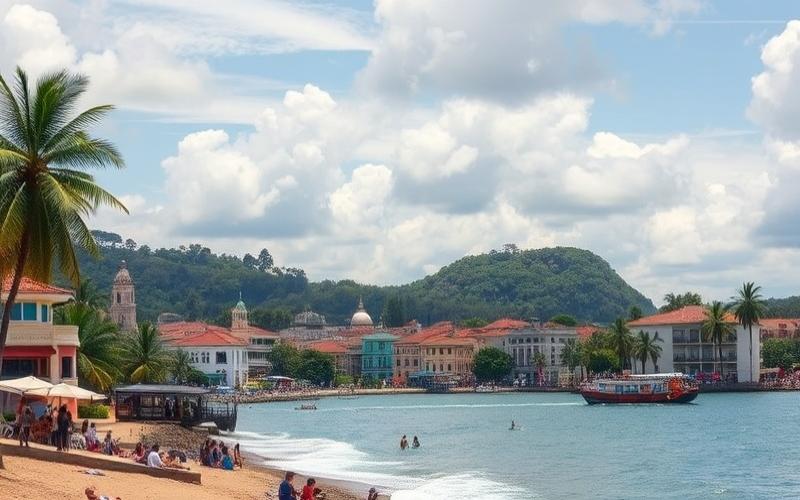
 Published on and written by Cyril Jarnias
Published on and written by Cyril Jarnias
The Dominican Republic, with its dynamic economy and growing appeal to foreign investors, offers numerous opportunities for entrepreneurs. However, to succeed in this promising market, it’s crucial to understand how to effectively protect your intellectual property (IP). This article will guide you through the essential aspects of IP protection in the Dominican Republic, enabling you to secure your most valuable assets and thrive in this Caribbean country.
Innovation Treasures: Understanding Different Types of Intellectual Property
In the Dominican Republic, as in many countries, intellectual property takes various forms, each benefiting from specific protection. Understanding these different categories is essential to ensure optimal protection for your creations and innovations.
Patents are at the heart of invention protection in the Dominican Republic. They offer exclusive exploitation rights for a determined period, typically 20 years from the filing date. This protection is particularly important for technological innovations, industrial processes, or new products. Dominican patent law (Law 20-00) establishes the patentability criteria: novelty, inventive step, and industrial application.
Trademarks, on the other hand, protect your company’s distinctive signs. They can include names, logos, slogans, or even sounds and scents. In the Dominican Republic, trademark registration grants you exclusive rights for a period of 10 years, renewable indefinitely. This protection is crucial for establishing and maintaining your brand identity in the Dominican market.
Copyrights protect literary, artistic, and scientific works. In the Dominican Republic, these rights are automatically granted upon creation of the work, without requiring formal registration. However, registration with the National Copyright Office (ONDA) can provide additional proof of ownership in case of dispute.
Industrial designs and models are also protected in the Dominican Republic. They concern the aesthetic or ornamental aspect of a product. Registering an industrial design or model grants you protection for 5 years, renewable up to a maximum of 15 years.
Good to know:
The Dominican Republic offers protection for various forms of intellectual property, including patents, trademarks, copyrights, and industrial designs. Each type of IP benefits from specific protection periods and may require formal registration for optimal protection.
Securing Your Rights: The Intellectual Property Registration Process
Registering your intellectual property rights in the Dominican Republic is a crucial step to ensure their legal protection. Although the process may seem complex, a clear understanding of the steps to follow can greatly facilitate the procedure.
For patents, the registration procedure begins with filing an application with the National Industrial Property Office (ONAPI). This application must include a detailed description of the invention, drawings if necessary, and claims defining the scope of the requested protection. ONAPI then conducts a formal examination, followed by a substantive examination to verify that the invention meets patentability criteria. This process can take several years, but provisional protection can be obtained upon filing the application.
Trademark registration follows a similar but generally faster process. The application must be filed with ONAPI, accompanied by a clear representation of the trademark and a list of the products or services for which protection is requested. After formal and substantive examination, if no opposition is filed, the trademark is registered and published in the official bulletin.
For copyrights, although registration is not mandatory, it is highly recommended. Registration is done with ONDA and requires submitting a copy of the work, along with an application form and payment of corresponding fees. ONDA then issues a registration certificate that can prove valuable in case of dispute.
Industrial designs and models are registered with ONAPI. The application must include clear graphic or photographic representations of the design or model, along with a description of its distinctive characteristics. After examination and in the absence of opposition, the design or model is registered for an initial period of 5 years.
It’s important to note that the Dominican Republic adheres to several international intellectual property treaties, notably the Paris Convention and the Patent Cooperation Treaty (PCT). This means that international patent and trademark applications can be extended to the Dominican Republic, offering a simplified pathway for protection in multiple countries.
Good to know:
Although registration processes vary depending on the type of intellectual property, they generally involve filing an application with the competent authority (ONAPI or ONDA), followed by examination and, if approved, registration. The Dominican Republic’s adherence to international treaties also facilitates international protection of your rights.
Despite all your efforts to protect your intellectual property in the Dominican Republic, your rights may sometimes be challenged or violated. In such situations, understanding how to handle disputes is essential to effectively defend your interests.
The Dominican judicial system offers several recourse options in case of intellectual property infringement. Civil and criminal courts are competent to handle these cases, depending on the nature and severity of the offense. For commercial disputes, including those related to IP, the Dominican Republic has established specialized commercial courts, which can accelerate the conflict resolution process.
Civil actions are often the first step in resolving IP disputes. They can include requests for injunctions to stop unauthorized use of your intellectual property, as well as claims for damages to compensate for losses incurred. Dominican courts have the power to order seizure of counterfeit products and even temporary closure of infringing businesses.
In more serious cases, criminal prosecutions can be initiated, particularly for large-scale counterfeiting or organized piracy. Criminal sanctions can include substantial fines and imprisonment, serving as powerful deterrents against IP violations.
Alternative dispute resolution methods, such as mediation and arbitration, are gaining popularity in the Dominican Republic. These approaches can offer faster and less costly resolution of IP disputes while preserving business relationships. The Alternative Conflict Resolution Center of the Santo Domingo Chamber of Commerce and Production offers specialized mediation and arbitration services for commercial matters, including IP disputes.
It’s crucial to note that speed of action is often decisive in IP disputes. Dominican law provides for provisional measures that can be obtained quickly to prevent or stop an ongoing violation, even before the case is decided on its merits.
International cooperation also plays an important role in managing IP disputes in the Dominican Republic. The country is a signatory to several international agreements, including the WTO’s Agreement on Trade-Related Aspects of Intellectual Property Rights (TRIPS). These agreements facilitate coordination between Dominican and foreign authorities in combating cross-border IP violations.
Good to know:
In case of intellectual property disputes in the Dominican Republic, you have several options, ranging from civil actions to criminal prosecutions, including alternative dispute resolution methods. Speed of action and knowledge of local procedures are crucial for effective defense of your rights.
Expertise at Your Service: The Importance of Specialized Legal Advice
In the complex field of intellectual property in the Dominican Republic, specialized legal expertise is not only valuable but often indispensable. Advice from an experienced IP attorney can make the difference between solid protection and costly vulnerabilities.
Intellectual property specialized attorneys in the Dominican Republic possess deep knowledge of local laws and nuances of the Dominican legal system. They can guide you through the subtleties of registration procedures, help you develop protection strategies tailored to your business, and effectively represent you in case of dispute.
When registering your IP rights, an attorney can ensure your applications are properly prepared and submitted, thus maximizing your chances of obtaining strong protection. They can also conduct prior art searches to verify that your trademarks or patents don’t conflict with existing rights.
Regarding contracts and licenses, legal expertise is crucial. Specialized attorneys can help you negotiate and draft agreements that protect your interests while maximizing the value of your intellectual property. This includes license agreements, confidentiality agreements, and technology transfer contracts.
In case of dispute, an experienced attorney can assess the strength of your case, develop a defense or offense strategy, and represent you before courts or in alternative dispute resolution procedures. Their knowledge of legal precedents and jurisprudential trends in the Dominican Republic can be decisive for the outcome of your case.
IP specialized attorneys can also help you navigate the international aspects of intellectual property protection. They can advise you on the best strategies to extend your protection abroad, using systems such as PCT for patents or the Madrid system for trademarks.
It’s important to choose an attorney or law firm with solid experience in IP matters in the Dominican Republic. Look for professionals who are members of recognized associations such as the Dominican Intellectual Property Association (ADOPI) or who have an established reputation in the field.
Good to know:
Specialized legal expertise is a major asset for effectively navigating the Dominican intellectual property system. An experienced attorney can help you optimize your protection strategy, efficiently manage your rights, and resolve disputes favorably.
Building an Impregnable Fortress: Advanced Strategies for Optimal IP Protection
To truly secure your intellectual property in the Dominican Republic, it’s essential to adopt a strategic and proactive approach. Here are advanced strategies that will help you build robust and lasting protection for your intellectual assets.
Develop an IP culture within your company. Raise employee awareness about the importance of intellectual property and establish clear policies for its management. This includes procedures for identifying and protecting new innovations, as well as confidentiality protocols to preserve trade secrets.
Adopt a multi-layered protection approach. Don’t settle for just one type of protection. For example, for a new product, consider protecting not only the invention patent but also the product trademark, its industrial design, and potentially copyrights on its packaging or documentation.
Implement a market monitoring system. Stay vigilant about potential violations of your rights. This can include monitoring trademark and patent registers, as well as market surveillance to detect counterfeits. Specialized monitoring services can assist you with this task.
Use confidentiality agreements strategically. Before disclosing sensitive information to business partners or employees, ensure you have strong confidentiality agreements in place. These agreements should be adapted to the Dominican context and enforceable under local law.
Consider international filing strategies. If your company has international ambitions, think about using international IP protection systems, such as PCT for patents or the Madrid system for trademarks. This can offer you protection in multiple countries, including the Dominican Republic, in a more efficient manner.
Form strategic alliances. Collaborate with other companies or institutions to strengthen your IP position. This can include cross-licensing agreements or research and development partnerships that can expand your IP portfolio while sharing costs and risks.
Invest in documentation. Maintain detailed records of your creation and innovation processes. In case of dispute, solid documentation can be crucial for proving the origin and ownership of your innovations.
Adapt your strategy to the local context. Understand the specificities of the Dominican market and adapt your approach accordingly. This can include considering local business practices, consumer preferences, and market trends that could influence your IP strategy.
Stay informed about legislative changes. IP legislation is constantly evolving. Stay updated on changes in Dominican and international laws that could affect your rights. This may require close collaboration with local legal experts.
Good to know:
Effective IP protection in the Dominican Republic requires a multidimensional approach. By combining an IP-focused corporate culture, a diversified protection strategy, active market monitoring, and constant adaptation to local realities, you can build a strong fortress around your intellectual assets.
Protecting your intellectual property in the Dominican Republic is a crucial element for your company’s success in this dynamic market. By understanding the different types of IP, effectively navigating registration processes, being prepared to handle disputes, relying on expert legal advice, and implementing advanced protection strategies, you can create a robust shield for your innovations and creativity.
Remember that IP protection is an ongoing process that requires constant vigilance and adaptation to market and legislative developments. By staying proactive and investing in the protection of your intellectual assets, you position your company for sustainable growth and long-term success in the Dominican Republic and beyond.
Disclaimer: The information provided on this website is for informational purposes only and does not constitute financial, legal, or professional advice. We encourage you to consult qualified experts before making any investment, real estate, or expatriation decisions. Although we strive to maintain up-to-date and accurate information, we do not guarantee the completeness, accuracy, or timeliness of the proposed content. As investment and expatriation involve risks, we disclaim any liability for potential losses or damages arising from the use of this site. Your use of this site confirms your acceptance of these terms and your understanding of the associated risks.


